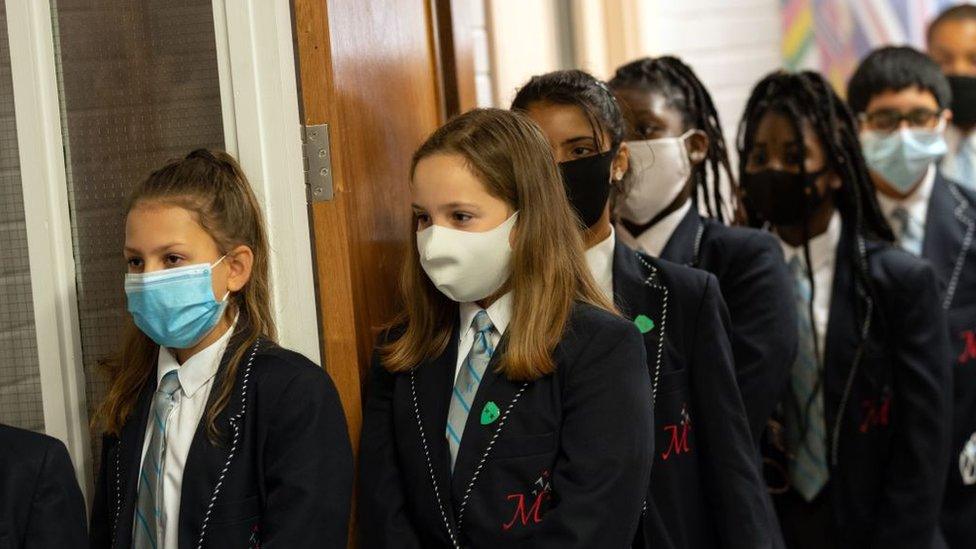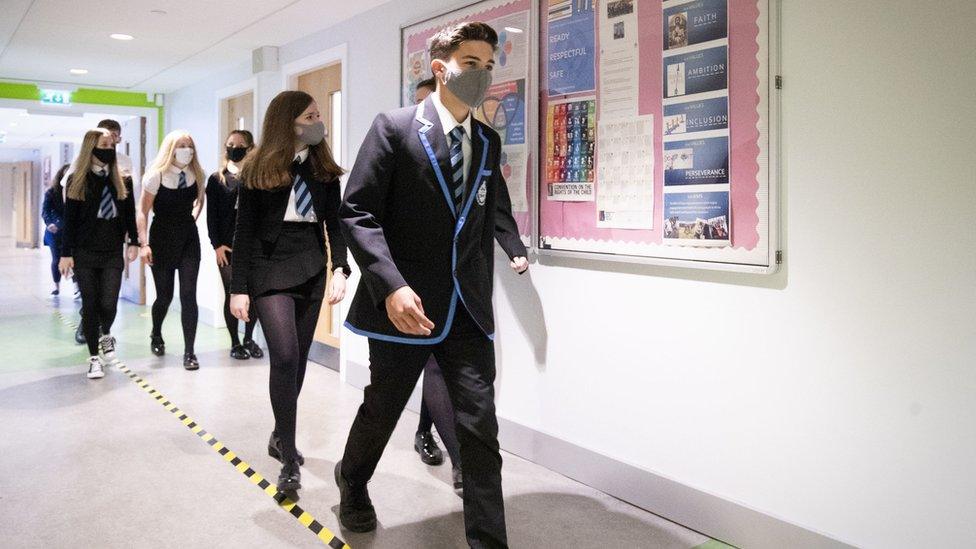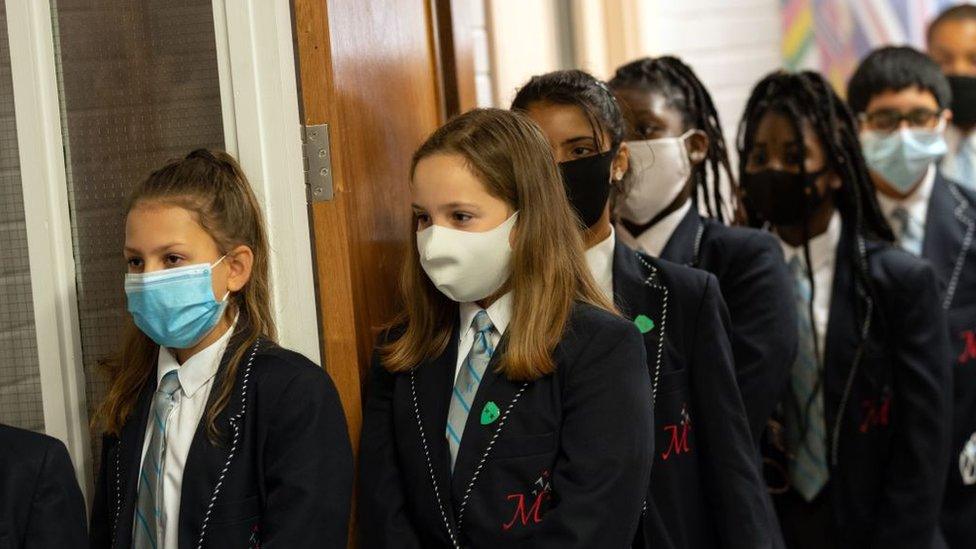Bill to prevent school shutdowns passes first test
- Published

A bid to protect millions of pupils in England from "the disaster" of future school and college shutdowns has been given an unopposed first reading in the Commons.
Robert Halfon, chairman of the Commons Education Committee, argued closing schools had caused too much harm,.
Mr Halfon wants ministers to consult the Children's Commissioner, and allow MPs a vote on any future closure plans.
Education Secretary Nadhim Zahawi said keeping schools open was his priority.
He told the education committee earlier on Wednesday he would look at Mr Halfon's Bill, but stopped short of backing it.
He added: "Protecting face-to-face learning is my absolute priority. I have no plans whatsoever to close schools again."
He said pupil vaccination and the testing regime was the way he intended to stop schools from needing to close.
School closures since the start of the coronavirus pandemic have resulted in children losing around 58% of all classroom time.
There was one period of lockdown in England from March to July 2020, and a further period at the beginning of 2021 in which schools were closed.
'Essential infrastructure'
This has led to children missing huge chunks of their education, and has had an impact on mental health and wellbeing.
Mr Halfon says such a huge decision should not be taken by ministers alone.
The Schools and Education Settings (Essential Infrastructure and Opening During Emergencies) Bill seeks to ensure educational settings - including early years, schools, colleges and universities - are classified as "essential infrastructure".
This means they would remain open to all students during any public health or other national emergency.
Mr Halfon wants ministers to consult England's Children's Commissioner, who represents children's interests, on whether any regional or national school and education lockdown is appropriate.
If approved, MPs would then be asked to debate and vote on the issue.
'Triple lock'
If that is approved, the matter would have to return to Parliament every three weeks, in case of a further extension.
This is being described as a "triple lock".
"Whilst national lockdowns were important to protect the health of the public, school closures have been nothing short of a disaster for our children," said Mr Halfon.
"By ensuring that any decision taken to close schools is done so following the recommendation of the Children's Commissioner, is agreed and voted on by a majority of Parliament, and is strictly time-limited, we can make sure the best interests of the child are considered at every stage to keep children in school.

"We owe it to our children to safeguard their educational futures, which Covid-19 put on hold."
Dame Rachel De Souza, Children's Commissioner for England said: "There is no doubt that children paid a high price for their time away from school, and now is the moment to put children at the heart of the recovery from the pandemic.
"That is why it is absolutely right for us to do all we can to keep schools open for children.
"A 'triple lock' would mean children's needs were considered at every stage to keep children in school."
'Thrown under a bus'
The Bill is also backed by the former Children's Commissioner for England, Anne Longfield, who said: "Never again must schools have to compete with pubs, theme parks and Primark to open."
Association of School and College Leaders general secretary Geoff Barton supported the move, adding; "Schools and colleges have been thrown under the bus during the coronavirus pandemic.
"They have been asked to carry out a range of public health tasks with minimal support from the government, as well as cope with constantly changing guidance and chaotic policy-making."
A Department for Education spokesperson said: "We acted swiftly during the pandemic to minimise the impact on children's education and wellbeing, and help keep pupils in face-to-face education as much as possible."
But Nick Brook, deputy general secretary of school leaders' union NAHT, said no one wants to see any further school closures.
"But this Bill misses the point. Rather than thinking about political mechanisms to prevent school closures, we need the government to do far more to help keep classes open."
The Bill will be presented for a second reading in February next year.
Related topics
- Published31 December 2020
